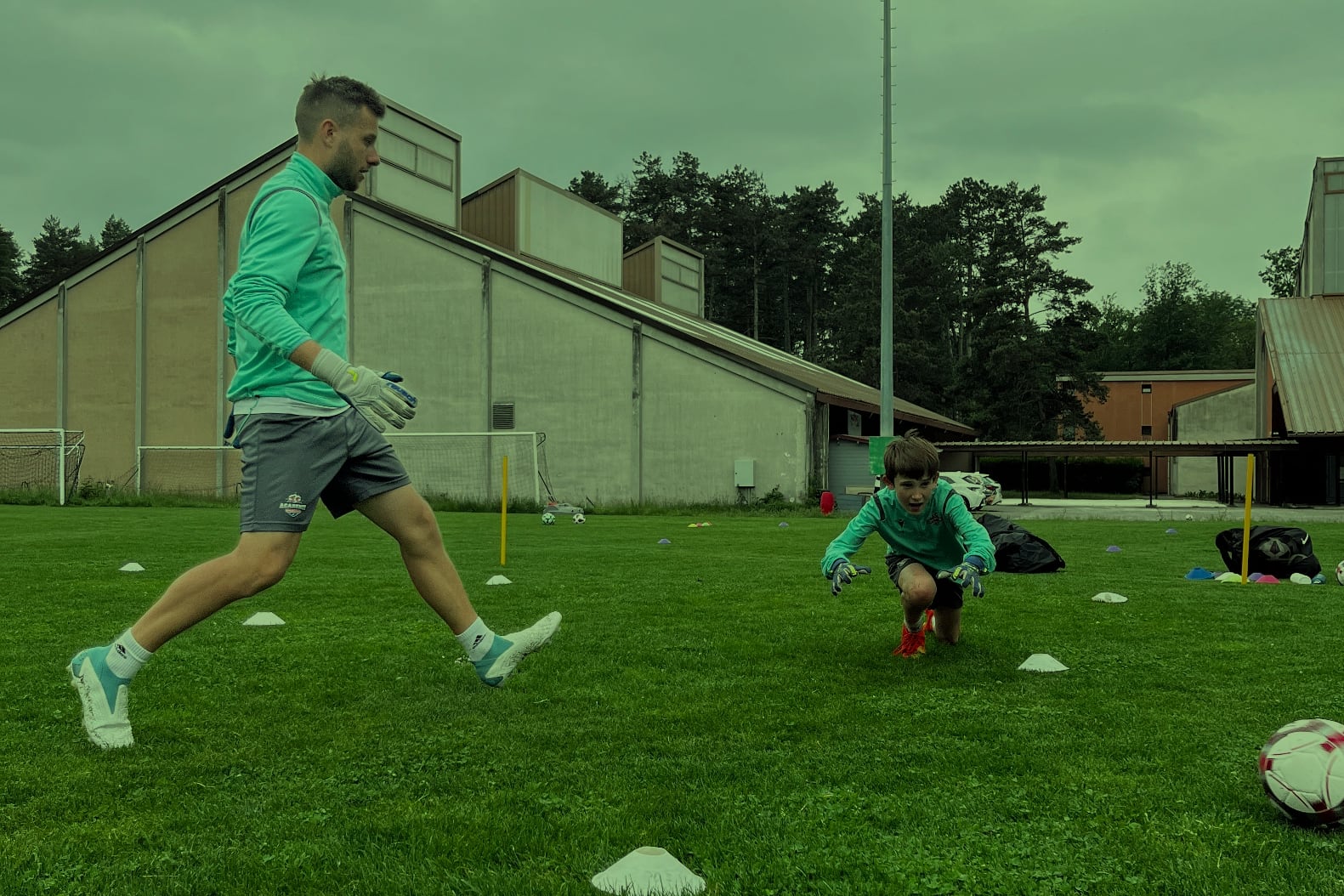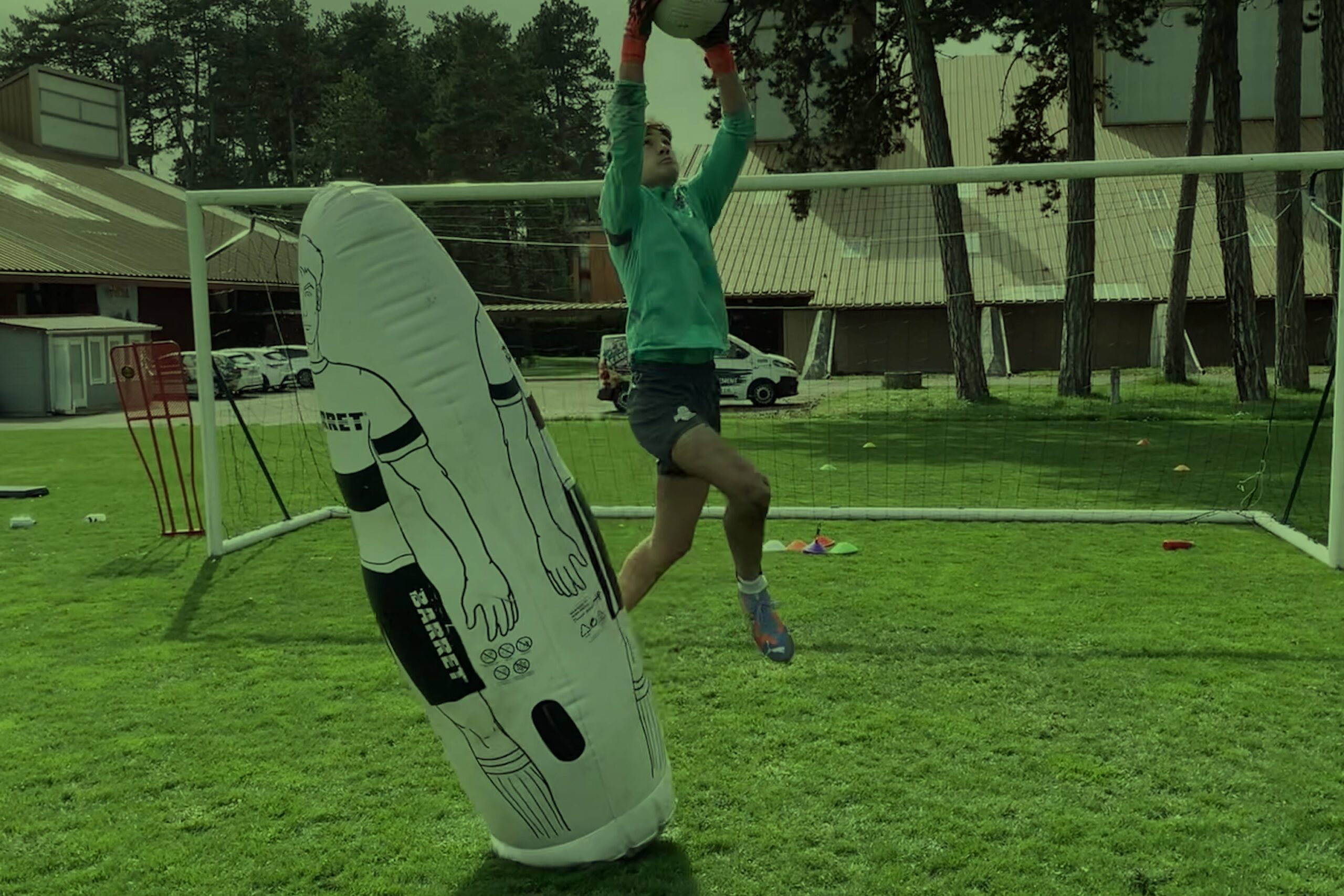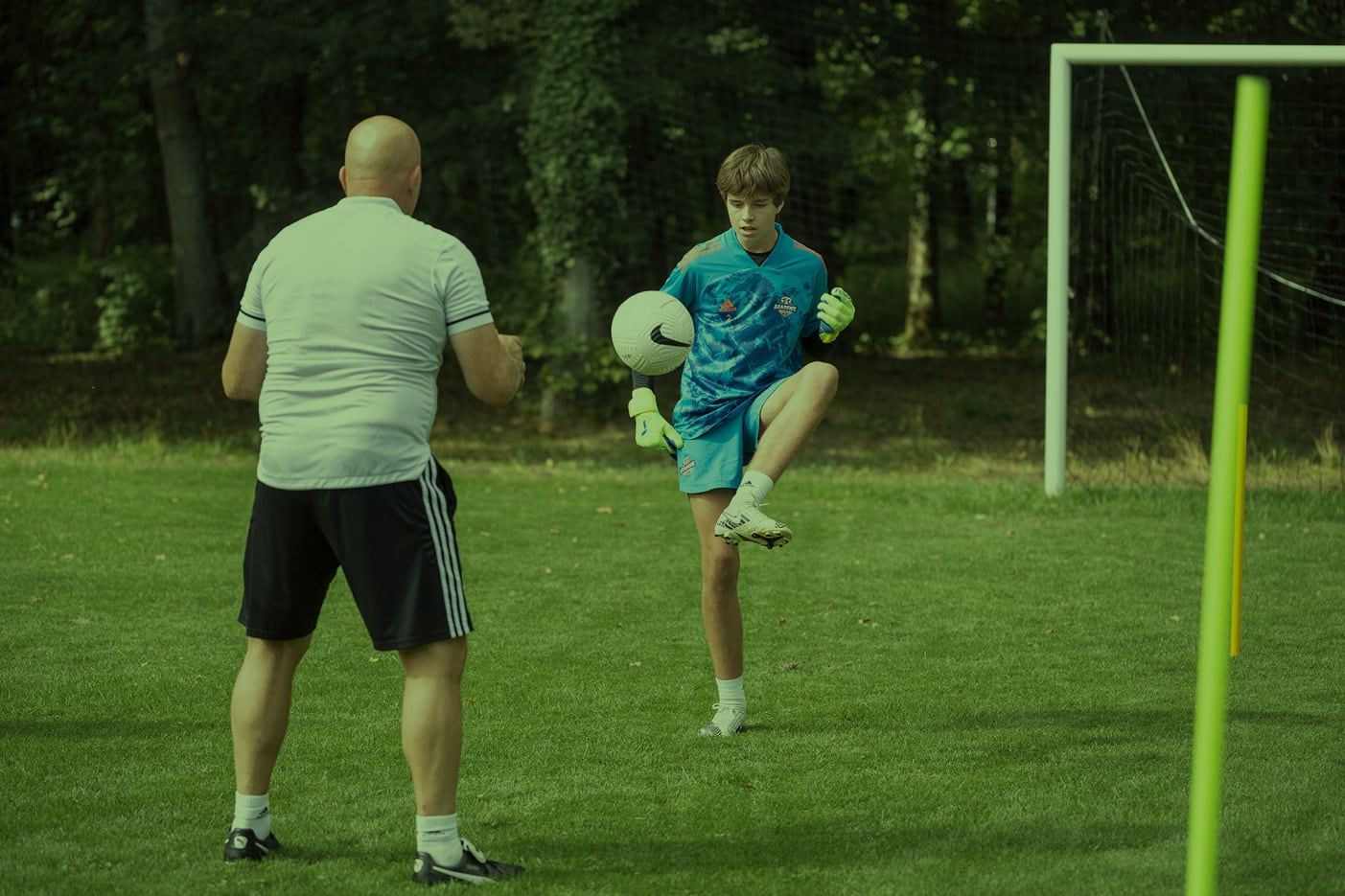The goalkeeper: A real participant in the game
Tanguy Jourdan, Académie Gardien De But
Transitions are a constant part of modern football and involve both outfield players and goalkeepers. The goalkeeper is a team’s first restarter, he is able to destabilise the opposition by changing the speed of play, and he has become an important element in the team’s tactics. How did the goalkeeper go from being a spectator to being a real participant in the game ?
Mastering defensive and offensive transitions
“Defensive-offensive” (DEF-OFF) and “defensive-offensive-defensive” (DEF-OFF-DEF) transitions are elements to work on during training sessions so that the goalkeeper is at the top of his game on the day of the match.
It is important that we have a quick recap of the concepts of defence and offence. Defensive transition refers to defending a goal or a space where the team is out of possession. Offensive transition, on the other hand, refers to the team being in possession and the goalkeeper restarting play by throwing or kicking the ball.
These elements must be worked on during training sessions so that the goalkeeper can react to the situation of play during a match. This practice work will enable him to be in the best possible condition to approach his match in a calm frame of mind.
Identifying these transitions and matching the speed of the action gives the keeper an advantage, as he will be able to make the right choices at any given moment.
Conversely, if he does not take all the parameters into account, he will get behind in the game and will not always make the right choices, which might destabilise his team.
A football match is a constant change of pace
Over the last ten years or so, football has become a tactical game going well beyond the physical and technical aspect. Previously, the game was very direct and very robust, with frequent defensive and offensive transitions and the midfield sending forwards deep into the opposition half against the goalkeeper, who stayed on his goal line. He was defending just his goal, and not the space between himself and his defence line. The goalkeeper was therefore not a participant in the game as such, as he played no active part in those transitions.
At present, teams play a constant game of transitions against team blocks, with the goalkeeper playing an essential role. The goalkeeper is much more involved in offensive transitions, i.e. clearing the ball, favouring accurate throw-outs or kick-outs. He can then make a difference by taking care over his restarts, changing the course of the game by changing the speed of play. This can destabilise the opposition team. Today, an active goalkeeper who has mastered the art of footwork is a formidable weapon and can be decisive in a match.
The role of the goalkeeper in tactical philosophies
As we mentioned previously, the keeper is at the heart of the team’s playing system and has truly become the eleventh player on the team, by comparison with the last few decades, when he was thought of as being separate from the rest of the squad.
Even before receiving the ball, the keeper must gather and be able to analyse the necessary information on the speed of the action in progress. When he receives the ball, he must be able to use these elements to speed up or slow down play, depending on the prevailing situation.
With his vision of the game and his technical skills, the goalkeeper must respond to the tactical requirements imposed by the system of play by choosing the appropriate restart to help his teammates in the offensive phase.




